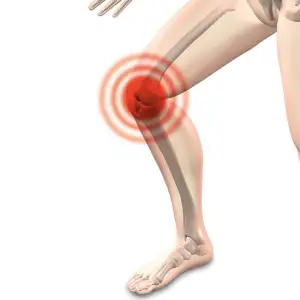Unlock Your Health Potential with the 5 2 Diet: Discover the Power of Intermittent Fasting

Introduction to the 5 2 Diet
Are you looking for a new and effective way to improve your health and lose weight? Look no further than the 5 2 diet. This innovative eating plan has gained popularity in recent years for its ability to promote weight loss, boost metabolism, and enhance overall health. By incorporating intermittent fasting into your routine, you can unlock your body's full potential and achieve your health goals. In this article, we will explore the concept of the 5 2 diet, its benefits, tips for success, and considerations to keep in mind. Get ready to discover the power of intermittent fasting!
Explanation of the concept: eating normally for 5 days, fasting for 2
The 5 2 diet, also known as intermittent fasting, is a popular eating pattern that involves eating normally for five days of the week and fasting for two non-consecutive days. On fasting days, individuals typically consume around 500-600 calories, while on regular eating days, they can eat their usual amount. This concept allows for flexibility in food choices and promotes a sustainable approach to weight loss and overall health improvement.
Benefits of the 5 2 diet for weight loss
The 5 2 diet has gained popularity for its effectiveness in weight loss. By incorporating intermittent fasting, the body is forced to tap into stored fat for energy during the fasting days. This calorie deficit leads to a reduction in overall body weight. Additionally, the 5 2 diet helps to regulate insulin levels and improve metabolic function, both of which are crucial for weight management. With consistent adherence to the 5 2 diet, individuals can expect to see significant weight loss results over time.
How the 5 2 diet promotes overall health
The 5 2 diet not only aids in weight loss but also promotes overall health. By incorporating intermittent fasting, the body is given a chance to rest and repair itself. This can lead to improved insulin sensitivity, reduced inflammation, and lower blood pressure. Additionally, studies have shown that intermittent fasting can enhance brain function and protect against neurodegenerative diseases. Overall, the 5 2 diet has the potential to optimize health and well-being.
Tips for successfully following the 5 2 diet
1. Plan your fasting days: Choose two non-consecutive days in the week to fast. This will help you mentally prepare and ensure consistency.
2. Stay hydrated: Drink plenty of water throughout the day, especially on fasting days. It will help curb hunger and keep you energized.
3. Opt for low-calorie foods: On fasting days, focus on consuming nutrient-dense, low-calorie foods such as vegetables, lean proteins, and whole grains to stay satisfied.
4. Listen to your body: If you feel excessively hungry or weak during a fasting day, it's okay to have a small snack or adjust your eating window slightly.
5. Utilize fasting aids: Consider using herbal teas, black coffee, or zero-calorie drinks to help suppress hunger cravings during fasting periods.
6. Keep busy: Engage in activities that distract you from thinking about food on fasting days. Go for a walk, read a book, or try a new hobby to keep your mind occupied.
7. Be mindful on non-fasting days: While you can eat normally on these days, be conscious of portion sizes and make healthy choices to maximize the benefits of the diet.
Remember that everyone's body is different, so it's important to listen to your own needs and consult with a healthcare professional before starting any new diet plan.
Potential risks and considerations of the 5 2 diet
While the 5 2 diet can offer numerous health benefits, it is important to be aware of potential risks and considerations before starting this eating plan.
Firstly, fasting for two days a week may not be suitable for everyone, especially those with certain medical conditions or dietary restrictions. It is always recommended to consult with a healthcare professional before embarking on any new diet.
Secondly, some individuals may experience side effects such as headaches, fatigue, or difficulty concentrating during fasting days. Staying hydrated and consuming nutrient-dense foods on non-fasting days can help alleviate these symptoms.
Additionally, it is crucial to maintain a balanced diet during the five non-fasting days to ensure adequate nutrition intake. Overeating or indulging in unhealthy foods on these days can negate the benefits of the fasting period.
Lastly, the 5 2 diet may not be sustainable for long-term weight loss or maintenance. It is essential to adopt healthy eating habits and incorporate regular physical activity into one's lifestyle for lasting results.
By considering these potential risks and making informed decisions, individuals can determine if the 5 2 diet is suitable for their specific needs and goals.
Sample meal plan for the 5 2 diet
Here is a sample meal plan to help you get started with the 5 2 diet:
Day 1 (Fast day):
- Breakfast: Black coffee or herbal tea
- Lunch: Vegetable soup or salad with minimal dressing
- Dinner: Grilled chicken breast with steamed vegetables
Day 2 (Fast day):
- Breakfast: Green smoothie made with spinach, cucumber, and almond milk
- Lunch: Mixed greens salad with grilled tofu and lemon vinaigrette
- Dinner: Baked fish with roasted Brussels sprouts
Day 3 (Non-fast day):
- Breakfast: Oatmeal topped with berries and a drizzle of honey
- Lunch: Quinoa salad with roasted vegetables and feta cheese
- Dinner: Stir-fried shrimp with broccoli and brown rice
Remember, on fast days, aim to consume around 500-600 calories. On non-fast days, eat a balanced diet that includes lean proteins, whole grains, fruits, and vegetables. Adjust the meal plan according to your preferences and dietary restrictions.
By following this sample meal plan, you can experience the benefits of intermittent fasting while still enjoying delicious and nutritious meals.
The 5 2 diet can be a powerful tool for weight loss and overall health improvement. It offers flexibility, allowing you to eat normally for five days while incorporating intermittent fasting for two days. This approach not only helps in shedding pounds but also promotes various health benefits such as improved insulin sensitivity, reduced inflammation, and increased cellular repair.
However, it's important to consider your individual needs and lifestyle before starting the 5 2 diet. If you have any underlying medical conditions or are pregnant or breastfeeding, it's best to consult with a healthcare professional before embarking on this eating plan. Additionally, if you have a history of disordered eating or struggle with restrictive diets, the 5 2 diet may not be suitable for you.
Remember that consistency is key when following the 5 2 diet. Planning your meals ahead of time and finding support from friends or online communities can greatly enhance your success. Always listen to your body and make adjustments as needed.
In conclusion, if you're looking for a flexible approach to weight loss and improved health, the 5 2 diet could be worth considering. With its potential benefits and customizable nature, it has the power to unlock your health potential and help you achieve your goals.
Published: 02. 01. 2024
Category: Health



